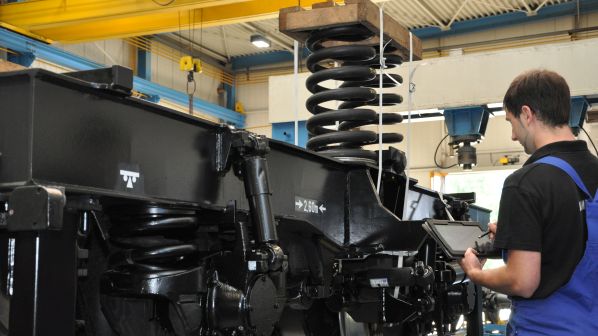2020 has been a year of disruption. Forced out of communal office spaces due to the coronavirus, people across the planet have discovered how to carry out their professional duties from their homes and to utilise digital tools in creative ways to innovate.
This spirit of innovation has long been a characteristic of the European rail supply industry. Our sector has continued its work and is looking beyond this crisis by launching active recruitment and skill training programmes designed to attract new talent and help nurture experienced colleagues’ potential.
In an increasingly competitive global market during a period in need of climate relief and economic recovery, the European rail industry is committed to addressing its current skill shortage to remain a global leader in the field and to continue driving the development of sustainable mobility solutions. To do so, we are working hand-in-hand with European institutions, academia, operators and infrastructure managers.
Recently, two significant initiatives have commenced to present rail as a fulfilling career path and expand dedicated training opportunities to potential and current rail sector employees.
The first is “Hop on for Our Planet!,” a communications initiative launched on October 21 by the European Rail Industry Association (Unife) in coordination with some of Europe’s largest rail supply firms.
This digital launch event was an important opportunity to share how sustainability-conscious Generation Z (16-25 year-olds) are seeking out green mobility options, are urging their governments to support such means of transport, and are interested in careers that are impactful in the international effort against climate change. This was clearly a trend in a survey conducted by the youth-oriented international think tank, Think Young, in support of the initiative across the campaign’s six target countries - Germany, France, Italy, Spain, Poland and The Netherlands.
This spirit of innovation has long been a characteristic of the European rail supply industry.
The Hop On campaign aims to position rail at the forefront of Europe’s green future by ensuring that young people, but particularly women and those looking for new career paths, are aware of Science, Technology, Engineering and Mathematics (Stem) professional openings in our field. The campaign also publicises available training programmes to experienced rail colleagues. This information is being communicated through platforms ranging from LinkedIn to Instagram and a dedicated website www.hoponrail.eu stocked with industry testimonials and job vacancies.
Employment
Unife hopes that these efforts to boost employment in the rail sector will be amplified by the European Union’s 2021 “European Year of Rail,” a Europe-wide public facing celebration of rail as the most sustainable, innovative and safest mode of transport, and another important initiative pertaining to skills in rail: the EU’s recently approved Blueprint for Sectoral Cooperation on Skills for Rail.
To fill the workforce gaps, European rail suppliers will require institutional cooperation. There has already been notable success between the two, emphasised in the Shift2Rail Joint Undertaking, which brought together rail sector leaders, academia and the EU to craft innovative green mobility solutions, which should be extended as Shift2Rail-2.
However, this extended programme will require more than substantial EU funding support - €1.5bn has been requested through the Multiannual Financial Framework - to create the next-generation European rail transport system. The EU will need to generate and improve skilled human capital being developed through the recently approved Blueprint for Skills in Rail to do so.
The Green Deal is an ambitious initiative that necessitates preparing the next generation of European workers to accomplish its goals.
Following the European Commission’s assessment of a skill gap in the rail supply sector and its potential impact on growth, innovation and competitiveness, the blueprint - co-funded by the EU in the framework of the Erasmus+ programme - represents a commitment to reversing this adverse trend.
Swift completion of the rail sector blueprint will lead to a quicker roll out of national and regional plans that will build synergies between governments, regional authorities, academic and vocational training centres and rail suppliers. Doing so is essential to develop greener rail products that will serve as the backbone to a sustainable, seamless and multimodal mobility paradigm.
2020 has been a year of crises, but as we continue to battle Covid-19, Unife is committed to charting future successes. We are similarly committed to working with the EU to ensure a timely Covid-19 recovery and achieve key EU Green Deal objectives such as making the continent carbon neutral by 2050.
The Green Deal is an ambitious initiative that necessitates preparing the next generation of European workers to accomplish its goals. Similar efforts are needed to achieve the objectives of the forthcoming Sustainable and Smart Mobility Strategy to be presented soon by transport commissioner, Ms Adina Valean.
Unife will continue to advocate for these conditions while working with the EC - including research and innovation commissioner, Ms Mariya Gabriel - and the European Parliament, as well as the current German presidency of the council and the Portuguese presidency, which will take office at the beginning of next year.
Skills initiatives are not only an opportunity to ensure economic stability for young Europeans in need of work or professional advancement, they are an essential step towards fortifying Europe’s ability to remain a green mobility leader in the years to come.

